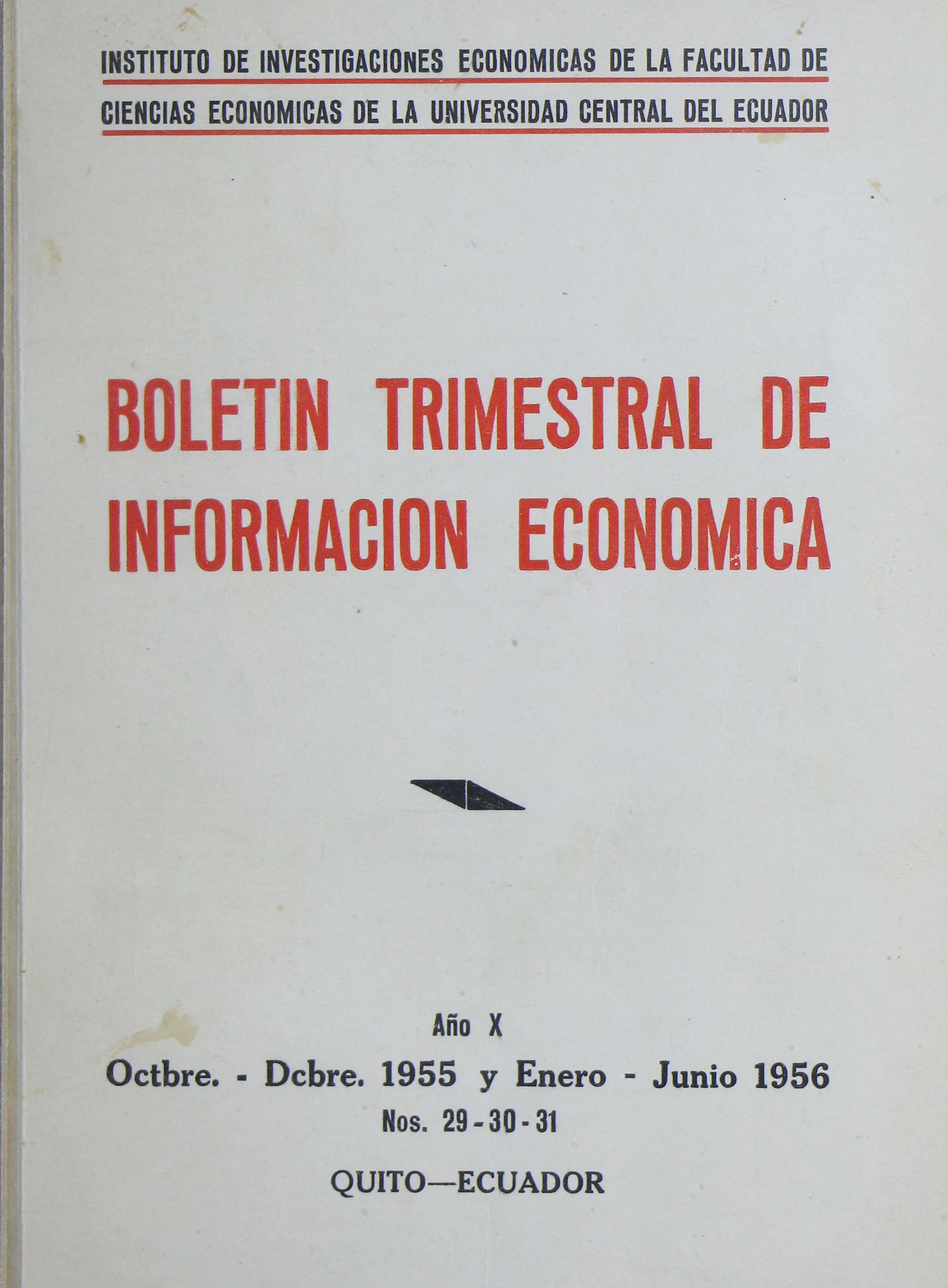Observaciones acerca de la evolución histórico-teórica de los Bancos Centrales
Main Article Content
Abstract
Este artículo fue escaneado por la Biblioteca Ecuatoriana Aurelio Espinosa Pólit.
Los dos últimos decenios constituyen uno de los períodos más interesantes en la historia de la lenta evolución de los Bancos Centrales. La gran crisis del año 1929 y la segunda guerra mundial, el ocaso de la dirección política inspirada en el conservadorismo y el predominio de la política liberal y socialista, el natural progreso de muchos países desde una economía colonial a otra diversificada e industrializada de tipo europeo que tiene implícita la exigencia de una mayor independencia financiera y la aspiración a la completa autonomía política, y, por último, la decadencia de la potencia financiera de Inglaterra, Francia y en general de las grandes naciones europeas, han provocado el significativo desarrollo de este tipo de Institutos.
Downloads
Article Details

This work is licensed under a Creative Commons Attribution-NonCommercial 4.0 International License.
The authors who publish in this journal accept the following conditions:
- The authors retain the copyright and assign to the Economics Magazine the right of the first publication, with the work registered under Creative Commons Attribution-NonCommercial 4.0, which enables third parties to redistribute, commercial or non-commercial, of what has been published as long as the article circulates completely and without changes.
- Authors can make other independent and additional contractual agreements for the distribution of the article published in this journal (for example, add it to an institutional repository or publish it in a book) as long as they clearly and clearly specify that the article was published for the first time. once in Revista Economía. In case of reproduction, a note similar to the one presented below must be included: This text was originally published in the Revista Economía No.…, volume…, number of pages, year of publication.
- Authors are suggested to publish their work on the internet (for example, on institutional or personal pages) of the final version published by Revista Economía since this can lead to greater and faster dissemination of the published article.

